Material UOMs: Difference between revisions
Jump to navigation
Jump to search
No edit summary |
No edit summary |
||
| (10 intermediate revisions by the same user not shown) | |||
| Line 1: | Line 1: | ||
Each Material within the database can be represented in a different UOM. For example a Pallet (PAL) may contain Cases (CS) of Product and each Case will contain a single item or Each (EA). The system can also represent other units of measure, for example - Layers per Pallet (LAG). In order to be able to convert between these units of measure each Material has it's own associated list of Units. If you look at the image below you will see some example data.<br> | Each Material within the database can be represented in a different UOM. For example a Pallet (PAL) may contain Cases (CS) of Product and each Case will contain a single item or Each (EA). The system can also represent other units of measure, for example - Layers per Pallet (LAG). In order to be able to convert between these units of measure each Material has it's own associated list of Units. If you look at the image below you will see some example data.<br> | ||
[[File: | [[File:Wiki material uoms.png|800px|thumb|left|Material UOMs]]<br> | ||
{| cellpadding="2" style="border: 1px solid darkgray;" | |||
|- align="center" | |||
[[File: | |[[File:wiki_uom_conversion_each.jpg]]<br/>Each (EA)||<br/><br/>[[File:wiki_uom_conversion_each2.jpg]]<br/>1 Each<br/> | ||
|- align="center" | |||
|format |[[File:wiki_uom_conversion_case.jpg]]<br/>Case (CS)||format |[[File:wiki_uom_conversion_case2.jpg]]<br/>1 Case = 18 Each's<br/> | |||
|- align="center" | |||
| | |format |[[File:wiki_uom_conversion_layer.jpg]]<br/>Layer (LAG)||format |[[File:wiki_uom_conversion_layer2.jpg]]<br/>1 LAYER = (18 Cases x 18 Each's) = 324 Each's<br/> | ||
|[[File:wiki_uom_conversion_case.jpg]]|| | |- align="center" | ||
|- | |format |[[File:wiki_uom_conversion_pallet.jpg]]<br/>Pallet (PAL)<br/><br/>||format |[[File:wiki_uom_conversion_pallet2.jpg]]<br/>1 Pallet = (5 Layers x 18 Cases x 18 Each's) = 1620 Each's<br/> | ||
|format | | |||
|} | |} | ||
Latest revision as of 18:07, 21 December 2023
Each Material within the database can be represented in a different UOM. For example a Pallet (PAL) may contain Cases (CS) of Product and each Case will contain a single item or Each (EA). The system can also represent other units of measure, for example - Layers per Pallet (LAG). In order to be able to convert between these units of measure each Material has it's own associated list of Units. If you look at the image below you will see some example data.
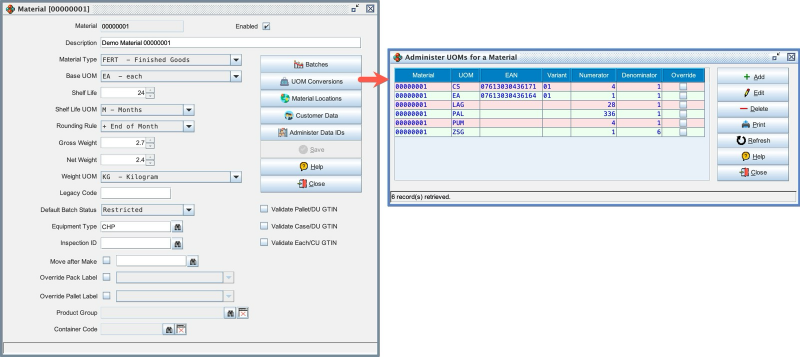
 Each (EA) |
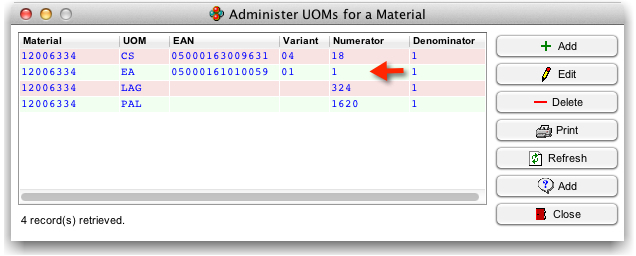 1 Each |
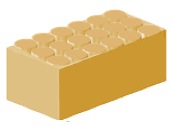 Case (CS) |
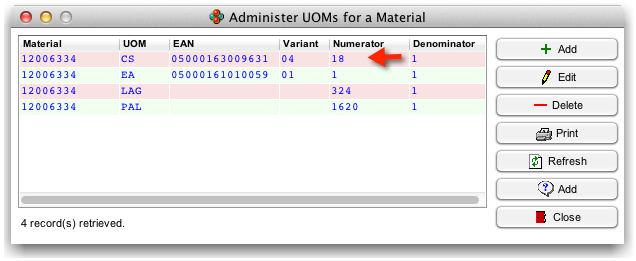 1 Case = 18 Each's |
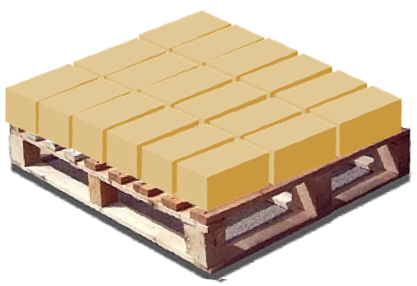 Layer (LAG) |
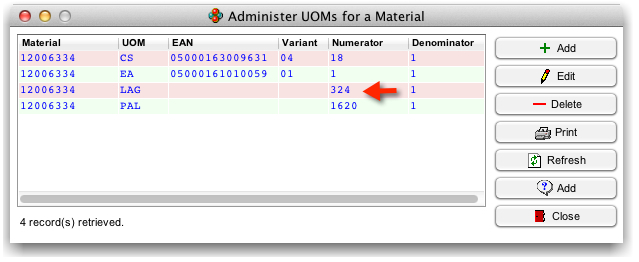 1 LAYER = (18 Cases x 18 Each's) = 324 Each's |
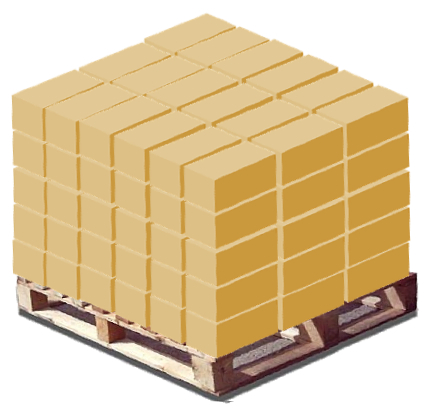 Pallet (PAL) |
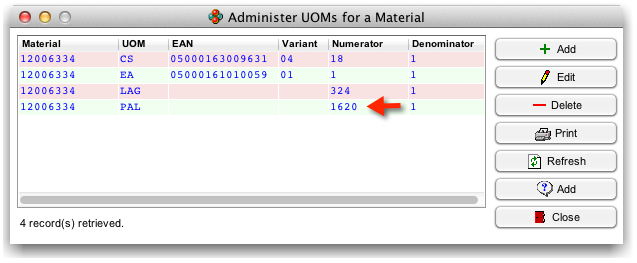 1 Pallet = (5 Layers x 18 Cases x 18 Each's) = 1620 Each's |